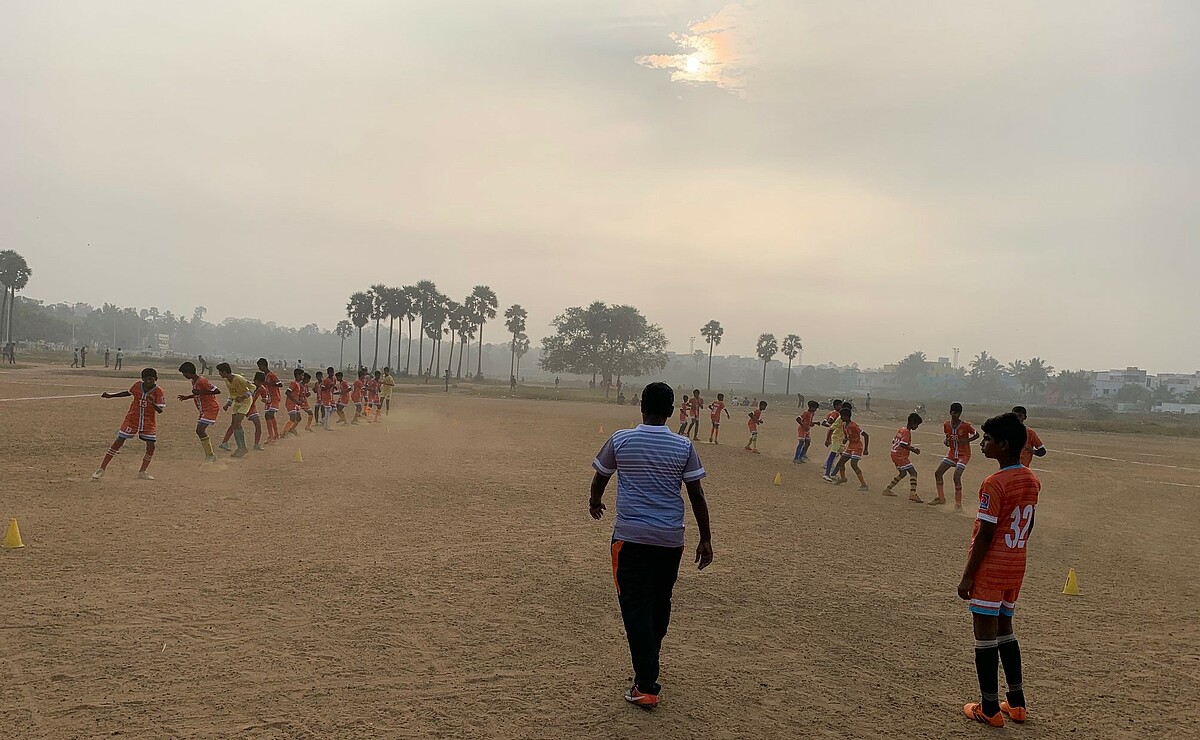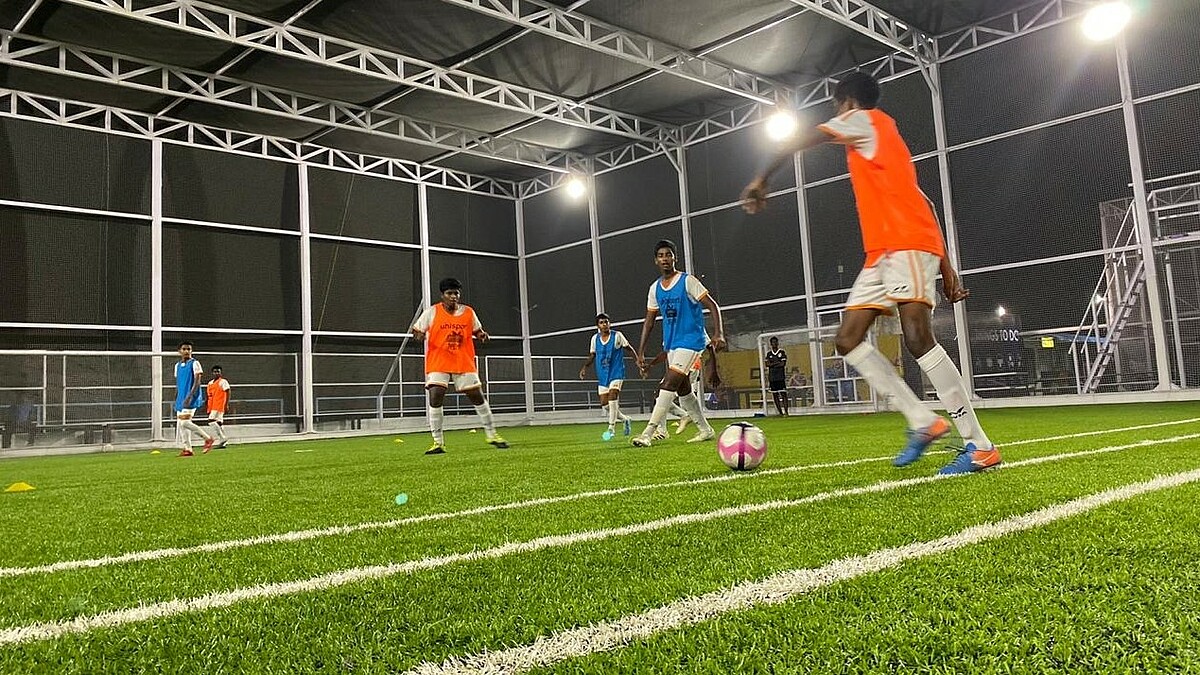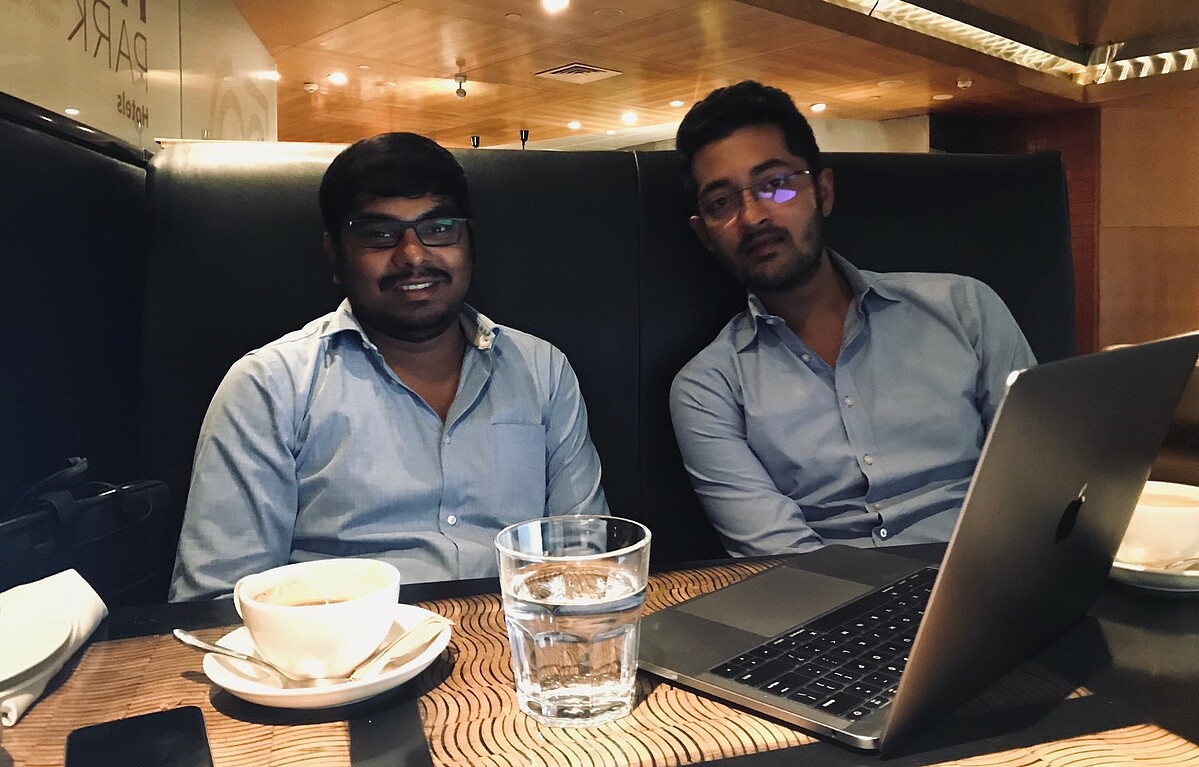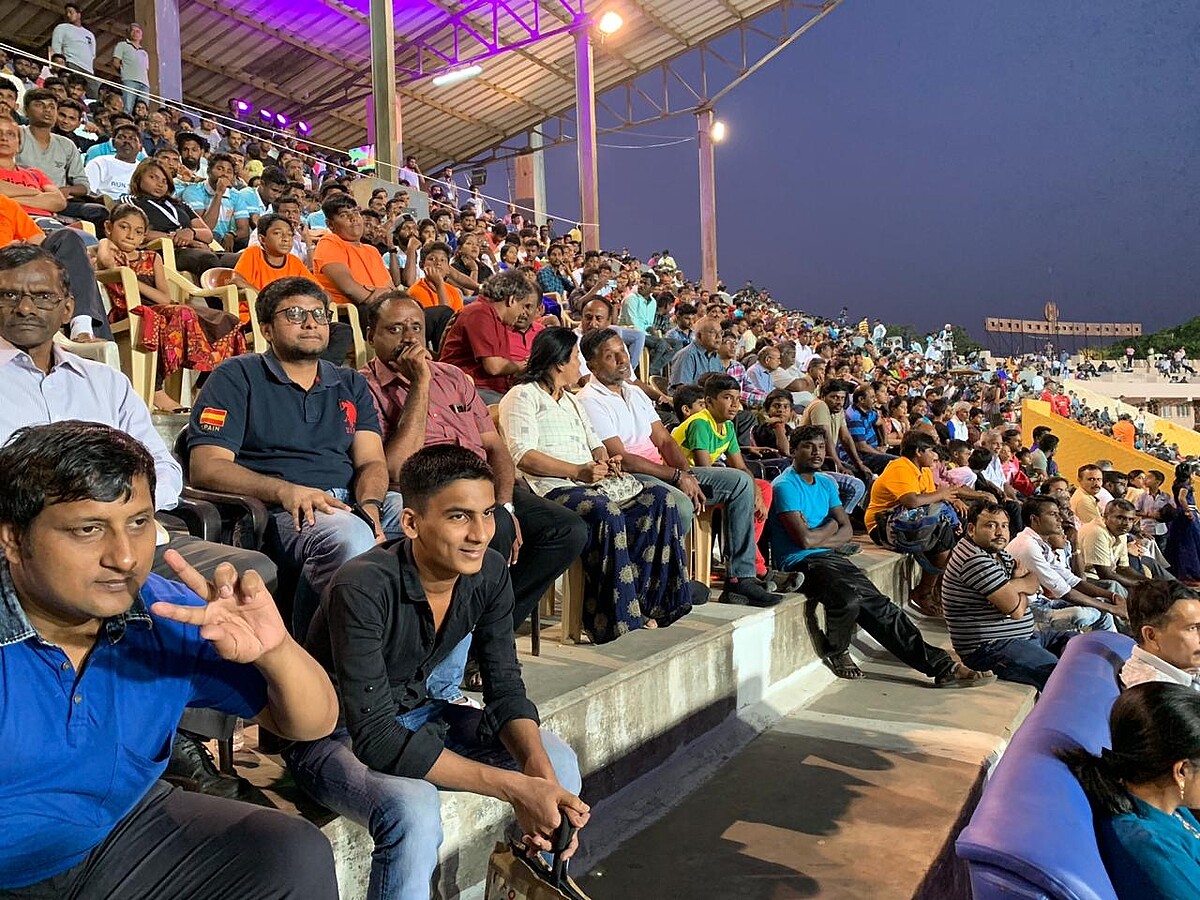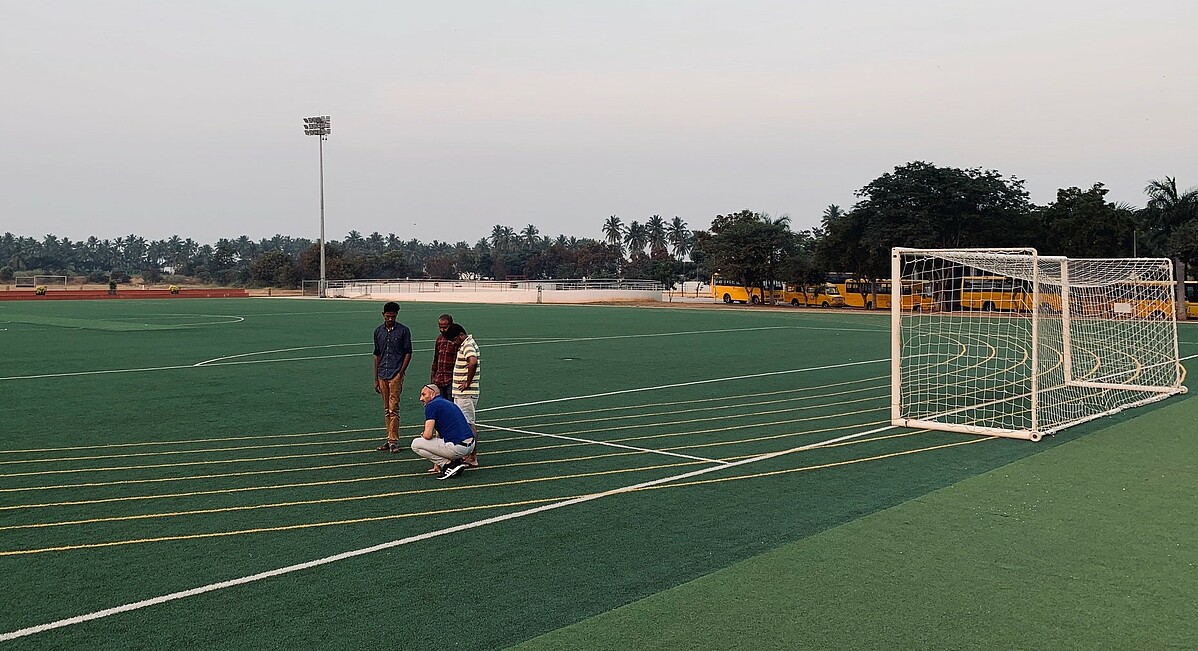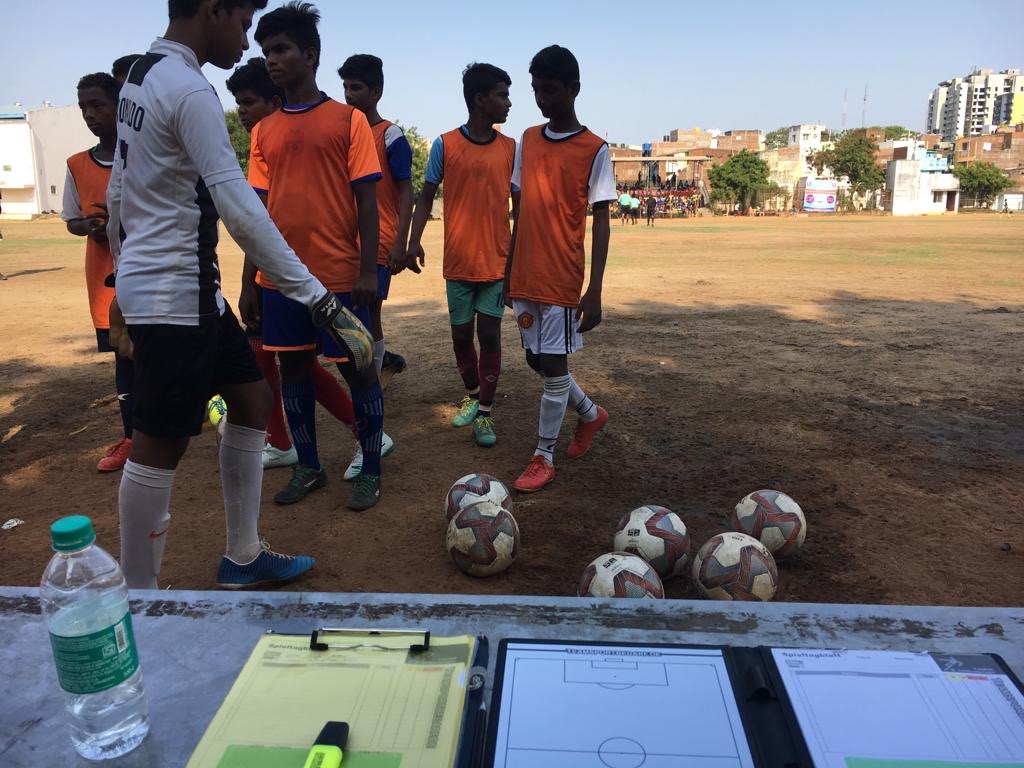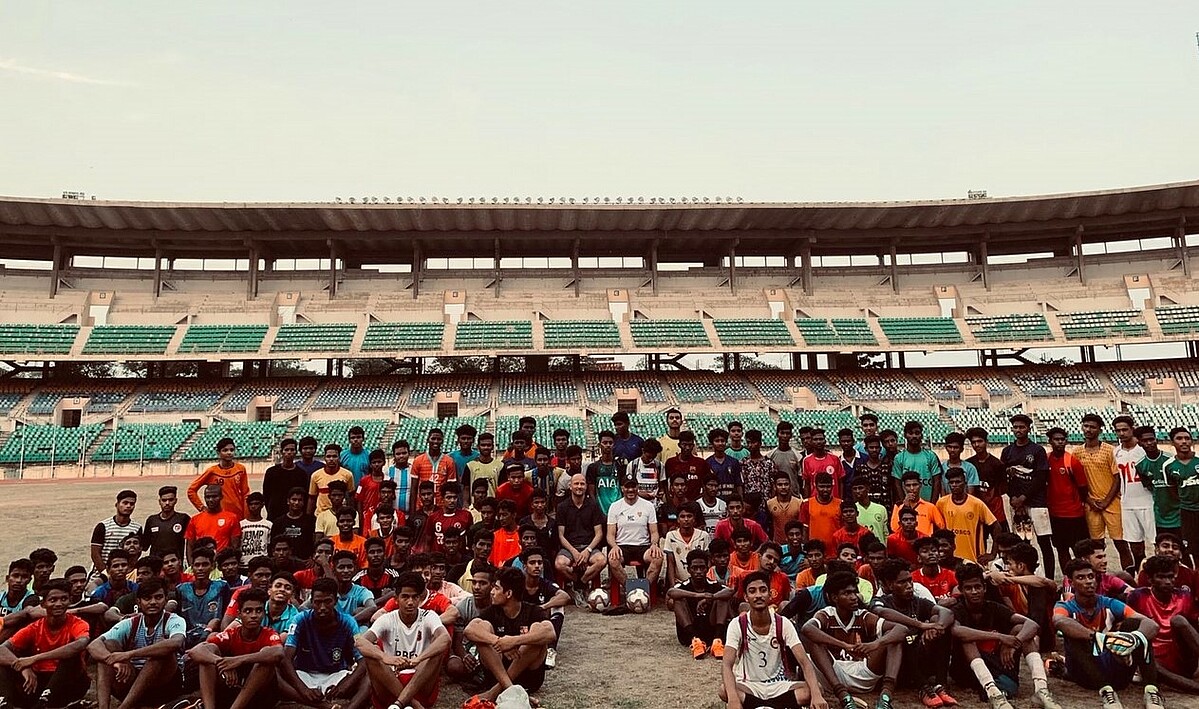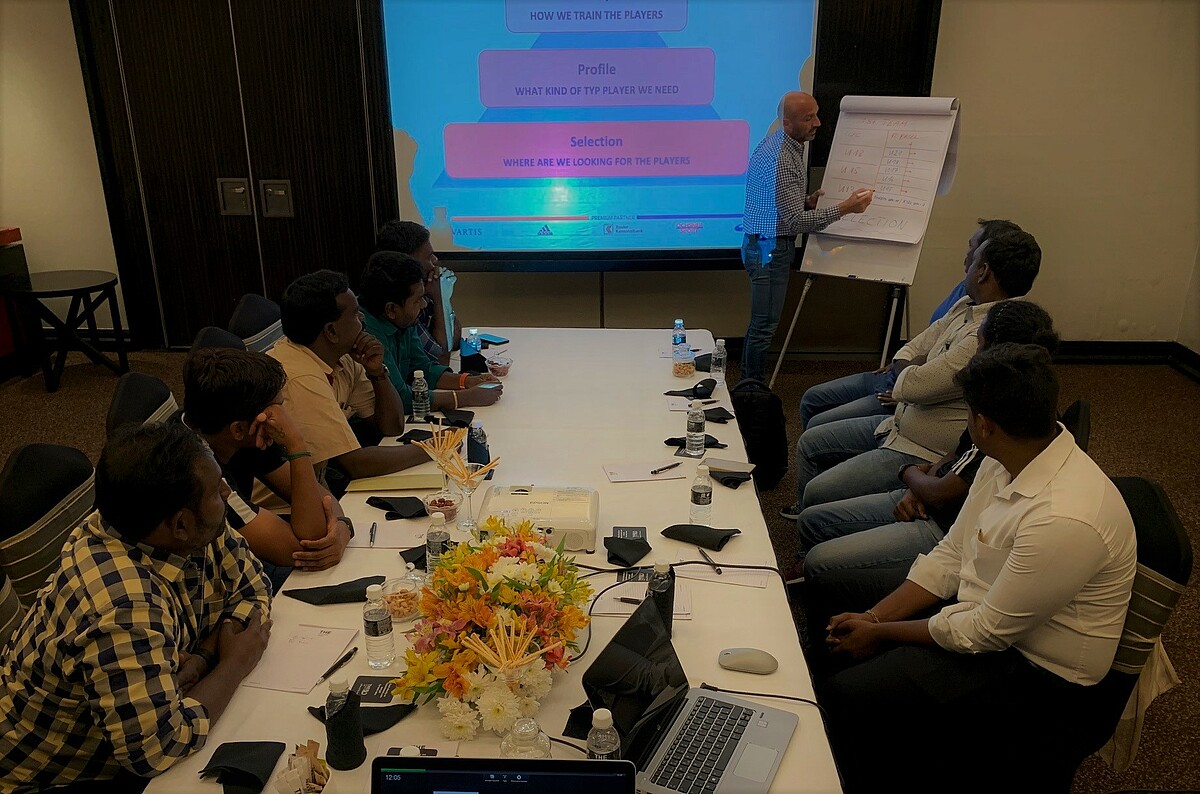What is the concrete state of affairs at the Academy?
Alanthurai, a small community west of Coimbatore - a rural area right on the border with the state of Kerala - was chosen as the location for the Academy. 32 acres were purchased, which is roughly the size of 18 football pitches. Mind you, not by FCB, but by Chennai City FC. CCFC is also financing the buildings. Three pitches with natural grass and two with artificial grass, a basketball court, a jogging track and a lake are planned. In addition, there will be a changing area, fitness room, physio rooms, a canteen, access routes and parking spaces and of course residential areas. There will be space for around 90 young people plus their carers.
And when will football be played there?
We are in the process of planning, constructing and budgeting with architects and clients. The high standards of FCB and Chennai City FC have to be reconciled. I expect that we will be able to train on the first pitches as early as June 2020 and the goal is to have the facility ready in September 2020. It shall become the best youth football academy in India.
This sounds big and ambitious in terms of time, and it seems like a long-term project.
It will be hard work over the next two or three years. Otherwise there will be no good output. And if we don't do it well, we won't get anything out of it in four years either. When we did the first sighting games, I realized that it should only be a long-term project. When I look at a twelve or thirteen-year-old boy playing football in a club in India and compare that with what I see on campus with his peers, there's not much difference. I don't see the same quality of plays in India yet, because the players are not yet educated well enough both technically and tactically, but in some cases I even see more potential, because they are better in their intuitive actions than some of our players in Basel. However, when I was allowed to observe an U18 sighting training session, I didn't really enjoy it, because the youngsters who have grown big and strong haven't made any progress in footballing terms.
What's the reason for this?
It's because there are no coaches, no real training concepts. There is no know-how yet on how to deal with young footballers. That's why they train the wrong way and the players don't improve. The short championship and the lack of competition do the rest.
How do you experience Indian children and young people?
No matter what region they come from: they have a humble attitude. There are no big-headed and arrogant types. From school, where they have to learn a lot, they bring discipline with them, sometimes they are almost too disciplined. If you take that as a basis, if they learn self-responsibility and if humility can be transformed into self-motivation, then in four or five years we will have many young, interesting Indian footballers who can play in Europe. Technically and athletically, they definitely have enough skills to develop into top class players.
In other words, we have to write off the older age groups and start with the twelve or thirteen-year-olds?
Exactly. The possibility cannot be ruled out that there might be an 18-year-old in this huge country who has the potential to make it to Europe in two years. But if we want to proceed systematically and bring the players up to a level where they have a real chance of ending up in one of the top five leagues in Europe, then we have to start with the younger ones. They can't, it may sound harsh, play "real" football. They have no feeling for the game situation, no rhythm, no phases in the game. The boys are great, they run, but when you watch them, it almost drives you crazy, because they just run. Our players on the other hand don't want to run anymore, they just want to play. So if you can implement a modern training concept in India, then I see an incredible amount of potential. And FCB has a lot to gain: Developing talent, generating income, not being so dependent on income from European competitions, which will be increasingly difficult to get hold of in the years to come anyway.

